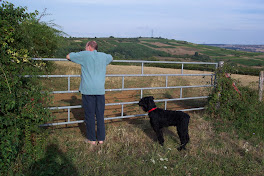The problem I have is keeping up. There is so much to read and so much to try. . . . . . and everything I read, leads on to more things to read and try. Does it ever end?
It used to be said that the great scientist in the 18th and 19th centuries were famous in all fields. They did a bit of physics, a bit of chemistry, a bit of botany, they collected butterflies and looked down microscopes, they dissected cadavers and carried out experiments on the behaviour of dogs. Some even had time to write music. With advances in science, specialists started to appear and then focussed specialists. Today it is a full time job just keeping up with the literature in a small field. What will happen in the future.
You are wondering if this is relevant to Web2.0, well it may not relate that much but it is relevant because the web and web2.0 extend the information and extend the possibilities. We have lost the editorial power of what experts believe to be true or correct. There is too much to read and no one regulates the quality. For example, I know nothing about tropical fish, but nothing stops me posing as an expert and leading others astray. How do we harness what is good to help others to learn.
The greatest skill for the future will not be searching for information, but filtering the less useful stuff. If anyone has any suggestions on how to do this I would love to know. Maybe the science fiction idea of downloading knowledge straight to the brain will happen in our life time or maybe we will develop a collective knowledge (the Borg?)
Thursday, 22 November 2007
Subscribe to:
Post Comments (Atom)


2 comments:
I SO identify with the time constraint problem. In some ways it seems as though the 'business model' for education that seems to have been embraced worldwide is going in completely the opposite direction to the capabilities the web offers. To really get to grips with all the things on offer, one really needs to have the income of the victorian gentleman who could afford to spend his time exploring possibilities rather than earning a crust. Maybe the gross inequalities of the time were needed to nurture that wide acquisition of knowledge. (I'd like to be able to look at your blog while writing this comment. Short-term memory problems!) Just found out how to do that. Whoopee.
I find the thought of something downloading information direct to the brain spooky. Also, I don't think it's just the knowledge but how you understand it and what you do with it.
thanks for all the ideas in your postings - wile there is a way to keep tabs on postings and information you are spot on when you suggest but then how do me filter for quality
Post a Comment